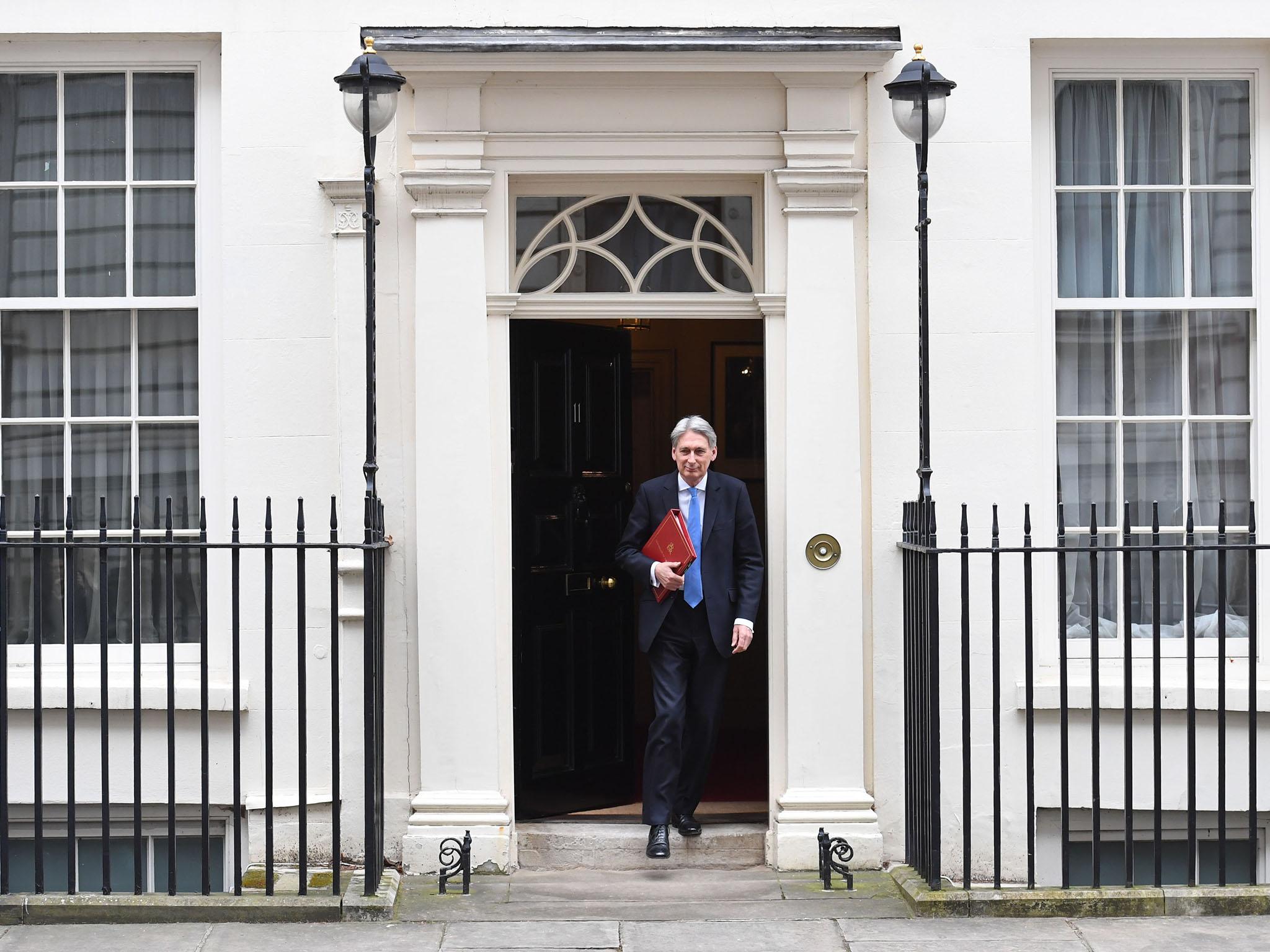UK needs £40bn in tax hikes to balance the books by mid 2020s, warns IFS
Respected think tank pours scorn on Philip Hammond’s optimism in its Spring Statement analysis

Tax hikes of about £40bn a year will be needed to balance the books by mid-2020s, the Institute for Fiscal Studies (IFS) has said.
The respected think tank poured scorn on Philip Hammond’s optimism in its analysis of his first Spring Statement, where it declared the need for tax rises of £30bn each year to retain public spending and balance the budget by the middle of the next decade – which the Tories promised to do.
An additional £11bn will be required to cover the health, social care and pension needs for the ageing population – taking the total to more than £40bn, IFS director Paul Johnson told a briefing in London.
It comes after Mr Hammond hinted he was preparing to kickstart spending in the Autumn Budget as he said positive economic forecasts had left him feeling “Tiggerish”.
Delivering his assessment of the Statement, Mr Johnson said the Chancellor needed to be “especially cautious about opening the spending taps” as public debt was not really due to fall under current plans.
However, public services are facing “undeniable” pressures compared with recent years, he said, citing safety in prisons, the NHS and local government funding as areas under particular strain.
Mr Hammond will need to find £14bn a year to avoid a drop in spending, and he will need an extra £18bn through tax increases or spending cuts to eliminate the deficit by the mid 2020s, the IFS found.
Mr Johnson said: “Put these two together and on current forecasts, just keeping spending constant as a fraction of national income beyond 2019/20 and reaching budget balance by the mid-2020s would require tax rises of £30bn a year.
“And that’s before additional demographic pressures which could add another £11bn a year to the money the Government would need to find from somewhere in 2025 if it wants to cover the additional demands for health, pension and social care spending.”
In Tuesday’s set-piece Statement, Mr Hammond said there was “light at the end of the tunnel” for the UK economy, as growth forecasts were revised upwards and debt was expected to fall.
Responding to the claims, Mr Johnson said “dismal productivity growth, dismal earnings growth and dismal economic growth are not just part of the history of the last decade, they appear to be the new normal” in the wake of the 2008 financial crisis.
He added: “Growth remains depressed, among the worst in the G20.
“And given the uncertainties around Brexit, there remains plenty of risk on the downside.”
It comes after the Resolution Foundation, another influential think tank, said the Chancellor must raise taxes or hope for better forecasts if he wants to meet his goal of eliminating the deficit.
Director Torsten Bell said: “With the elimination of the current deficit and debt falling next year, Britain is set to pass two major milestones on its long austerity journey since the financial crisis. But the end of the tunnel is still a decade away, and significant obstacles remain before the final destination is reached.
“Steering past these obstacles will require the Chancellor to make some tough choices that he avoided setting out yesterday [on Tuesday] lest he spoil the upbeat mood. Delivering significant reductions in debt while softening currently planned spending cuts to come will require either tax rises or for Britain to heed the Chancellor’s call to ‘beat the forecasts’.”
The Coalition pledged to eliminate the deficit within five years, before the then-Chancellor George Osborne extended the target to 2020. Mr Hammond then set it back to the mid-2020s after the EU referendum.
Join our commenting forum
Join thought-provoking conversations, follow other Independent readers and see their replies
Comments
Bookmark popover
Removed from bookmarks